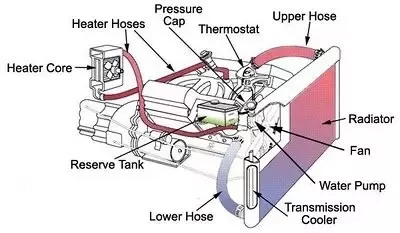How Hot Is a Car Internal Engine?
Introduction
A car’s internal engine is a complex and fascinating machine. It is responsible for converting the chemical energy in gasoline into mechanical energy that powers the vehicle. This process generates a lot of heat, which must be carefully managed to prevent damage to the engine.
How Hot Does a Car Engine Get?
The temperature of a car engine can vary depending on a number of factors, including the type of engine, the operating conditions, and the ambient temperature. However, in general, the following temperature ranges can be expected:
- Normal operating temperature: 190-220°F (88-104°C)
- Maximum safe temperature: 250-260°F (121-127°C)
- Danger zone: 270°F (132°C) and above
What Causes an Engine to Overheat?
There are a number of things that can cause an engine to overheat, including:
- Low coolant levels: Coolant is essential for regulating engine temperature. If the coolant level is low, the engine will not be able to cool itself properly.
- Faulty thermostat: The thermostat is responsible for controlling the flow of coolant through the engine. If the thermostat fails, the engine may not be able to reach its normal operating temperature.
- Clogged radiator: The radiator is responsible for dissipating heat from the engine. If the radiator is clogged, the engine will not be able to cool itself properly.
- Water pump failure: The water pump is responsible for circulating coolant through the engine. If the water pump fails, the engine will not be able to cool itself properly.
What are the Effects of Overheating?
Overheating can have a number of serious consequences for your car engine, including:
- Warped cylinder heads: Overheating can cause the cylinder heads to warp, which can lead to a loss of compression and power.
- Damaged pistons: Overheating can also damage the pistons, which can lead to a loss of compression and power.
- Melted bearings: Overheating can also melt the bearings, which can lead to a loss of oil pressure and a seized engine.
How to Prevent Overheating
There are a number of things you can do to prevent your car from overheating, including:
- Check your coolant level regularly: Make sure that the coolant level is always between the «min» and «max» marks on the reservoir.
- Get your thermostat checked regularly: Have your mechanic check the thermostat every 30,000 miles or so to make sure it is working properly.
- Clean your radiator regularly: Have your radiator cleaned by a professional every 2-3 years to remove any dirt and debris that may be blocking the airflow.
- Inspect your water pump regularly: Have your mechanic inspect the water pump every 50,000 miles or so to make sure it is working properly.
Conclusion
A car’s internal engine is a complex and fascinating machine. It is important to understand how hot it can get and what can cause it to overheat. By following the tips in this article, you can help prevent your car from overheating and keep it running smoothly for years to come.





